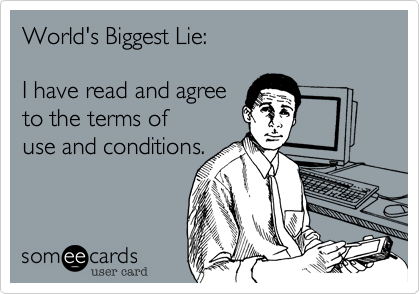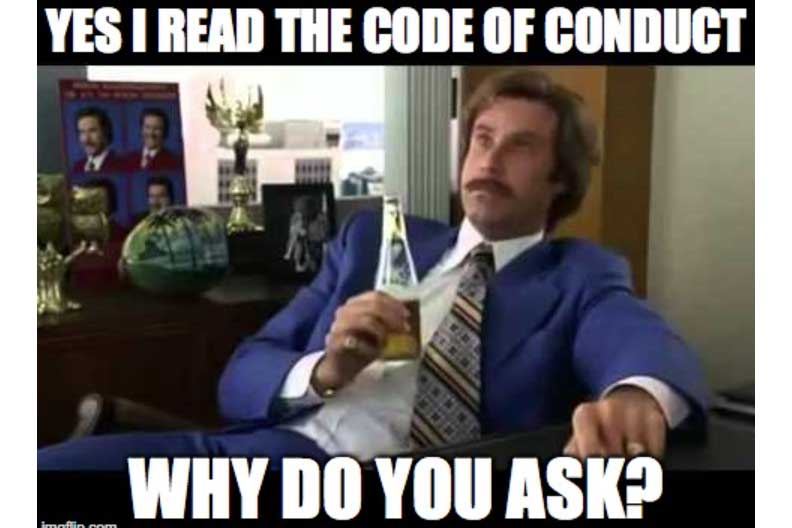When talking about copyleft, many people are misleading to its main principle. In my humble opinion English language is partly responsible for that - each time you have to explain a person about a free license, you have to specify that you are talking about free as in freedom, but not free as having no charge. To make things even worse the term copyleft was made. It might seem that compared to "copyright" a person who choses this type of license loses some of his rights as an author, but this is not true at all. So two disclaimers - when talking about copyleft the word free software should be read as free of limitations not free of charge and copyleft license remains all the major rights for the author, despite having word "left" instead of "right" in its name.
 |
| World's biggest lie[1] |
So what was copyleft designed for? The main reason for creating it was to protect authors who wanted their software to be used and widened by the community from corporations who can put a limit on it[2]. Imagine a situation - you come up with some great software idea and you want other developers to develop it. If we are talking about a simple copyright license - it would put too many limitations and could even block this process. However, if there is no license applied at all, you might run into a situation that a big company takes your idea, uses it with no to minor modifications and puts a license on it. And this is what stops your idea from being spread, so copyleft license was introduces. Its main goal it that others can use and widen product covered by a license, but they cannot apply a new more strict license on a product which uses your part.
Copyleft licenses themselves have different types. The most common division is weak - strong copyleft[3].
Strong copyleft basically means that the whole program that includes the copylefted code must be also available by the same copyleft license (GPL as an example). This might seem somehow funny, that you have a limitation to be as free (once again, as in freedom) as possible. It is a good choice for developers who believes in open-source want their idea be used and developed by others who share their ideas.
Weak copyleft means only the part of a program which uses the copylefted part and can use other types of license on their modifications (Mozilla Public License 2.0 is an example). This is a good option for software developers when they want their idea to spread, but not to limit those who utilize it on sharing the same principle. This is a good choice for example when you want your library is very useful, but not crucial for others project. This way author does not limit others on a freedom "too much".
So copyleft license might be a good alternative to a plain old copyright.
1.https://www.someecards.com/usercards/viewcard/MjAxMi01ZGU1YWZiODhkZjAwMTc3/?tagSlug=confession
2.https://www.gnu.org/licenses/copyleft.en.html#:~:text=Copyleft%20is%20a%20general%20method,in%20the%20public%20domain%2C%20uncopyrighted.
3.https://fossa.com/blog/all-about-copyleft-licenses/



Comments
Post a Comment